Nadja Matern of Zumtobel shares in this blog post lighting installations in Austria.
The place is internationally famous: Lech am Arlberg in Austria is a picture-postcard skiing location surrounded by an impressive mountain scenery, up to 2,809 meters above sea level. What is less widely known is the fact that some 1,500 people live in Lech. Some more figures: 8300 hotel beds are available; the small village located on the banks of the Lech rivulet at the foot of the mountains raggedly towering above it boasts almost one million overnight stays every year. Lech lives on tourism, and instead of simply relying on its exquisite location, the village sets great store by enthusing its guests anew every year.
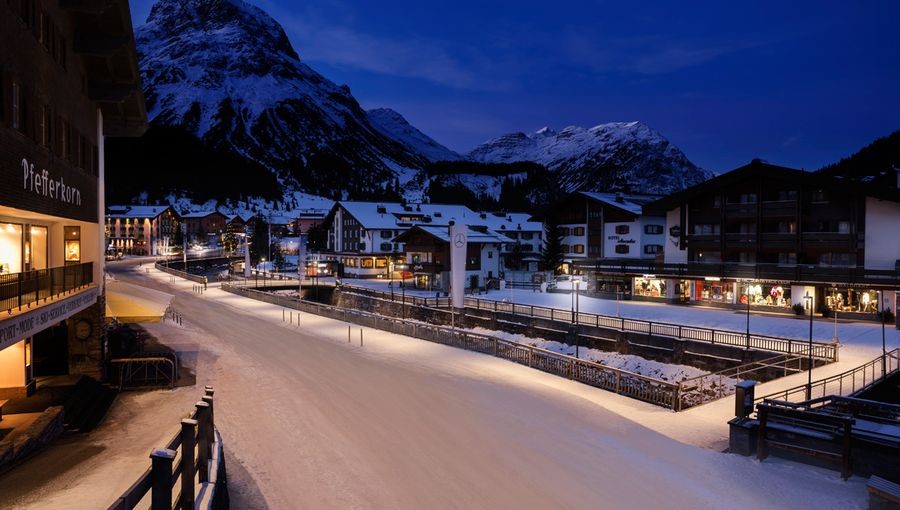 |
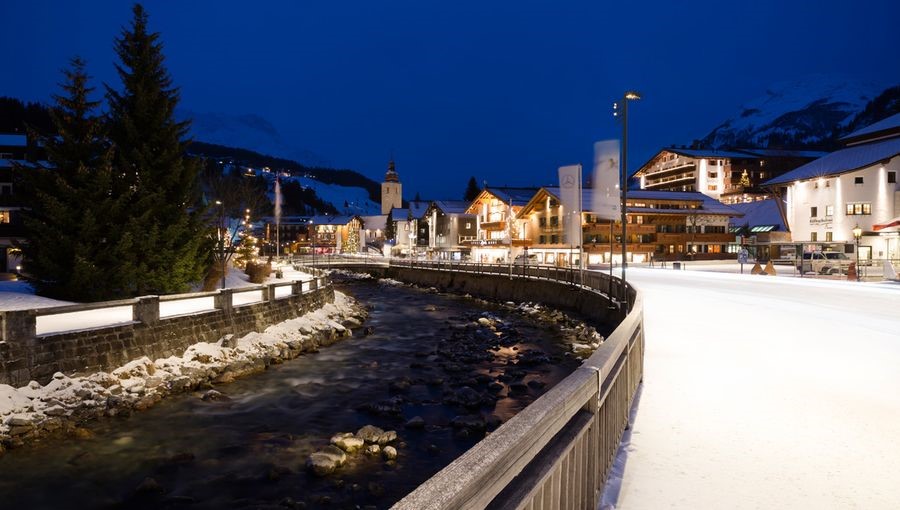 |
|
Lech am Arlberg in Austria, a picture-postcard skiing location, has recently been provided with new LED lights. (All photos courtesy of Zumtobel) |
Lech has been preserved as a smallish village settlement, at the same time making very high demands on itself. For instance, Lech was distinguished with the title "most beautiful village of Europe" in the past. Most tourists come in winter – and it is precisely in that season when the village wants to appear at its best: for this purpose, Lech has recently been provided with perfect lighting. However, not by means of glaring event illumination, but on the basis of accentuating spatial lighting that emphasizes the strong points of the village.
"The street lighting system in place with its obsolete technology was simply not up to contemporary requirements any more", remembers Karlheinz Egger from the Lech building authority. However, it took many meetings, a lot of persuading and many information events to win over political decision-makers, administrators and the local hotel keepers to opt for a new lighting concept based on LED technology. The latter was developed together with lighting consultant Dieter Bartenbach and implemented with the support of Zumtobel.
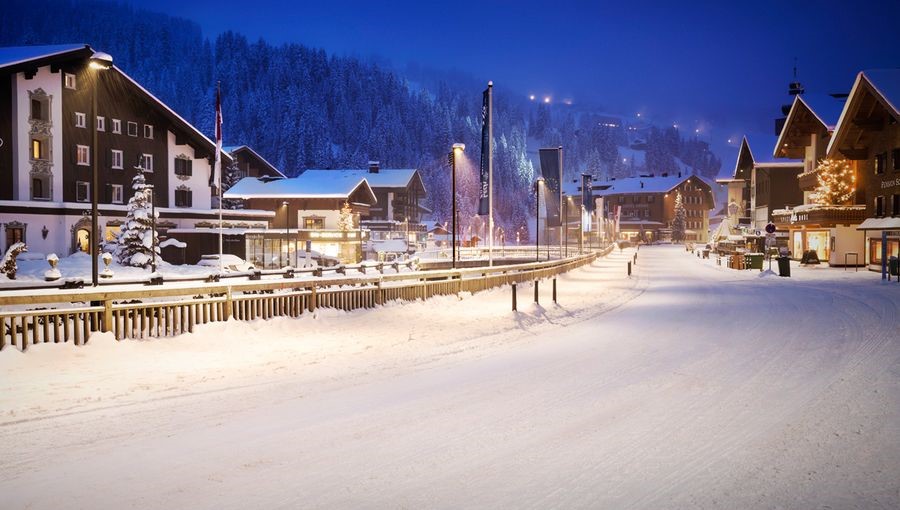 |
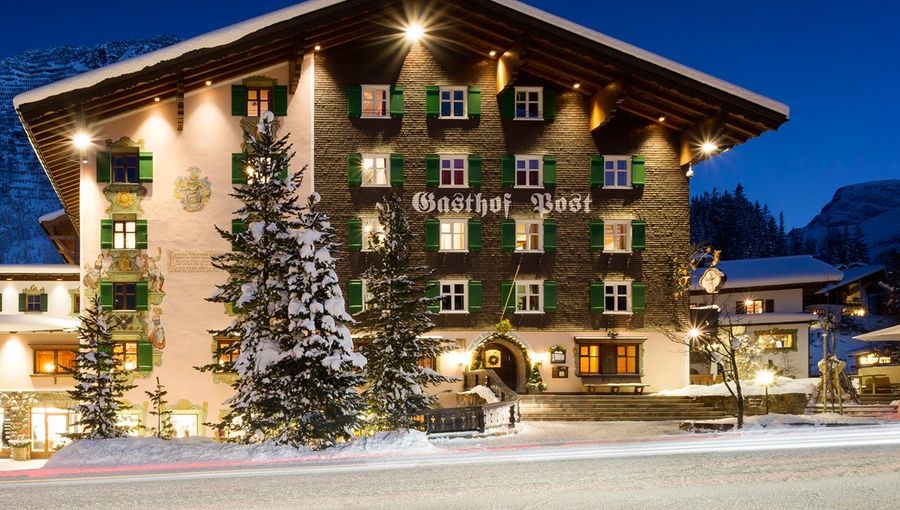 |
Conventional outdoor lighting: a "lighting mess" that "blurs" the townscape
The situation that Dieter Bartenbach was facing when he started his planning work was the same he finds again and again at other locations: a "lighting mess" that "blurs" the townscape, caused by conventional outdoor lighting using mostly diffuse lamps with open light distribution. This is countered by the illumination of shop windows and advertising facilities through highly excessive light radiation - making the original townscape disappear. "The perception of space is overturned in that the attention of the viewer is drawn exclusively to the sources of glare," Bartenbach explains.
Now, the new LED lighting is used to accentuate and deliberately highlight the nightly townscape of Lech with its typical features. The luminaire especially manufactured for this purpose dissolves the lighting intensity into several LED points, so that passers-by are hardly dazzled any more. Additionally, the light is now much more precise and directional than before. This is achieved through precise milling of the LED lighting points. Another benefit is the modular design, similar to a system of building blocks: the luminaires can be configured with 6 to 34 LED points, each with approx. 2 W. Thus, the lighting situation can be adjusted as required. For the columns, too, Zumtobel has developed various different versions depending on the location.
It is primarily the linear alignment of spaces that is characteristic of the village and is emphasised through light: the main street, which is pleasantly illuminated in the way of an esplanade, the house facades and the river. Making the river perceptible within the nocturnal townscape was considered important by the planners. The lighting brings the river back into the village by illuminating the banks and walls. Both are reflected along the water course and make for a dynamic image captivating the viewer through the movement of the current – a 3-dimensional effect is created.
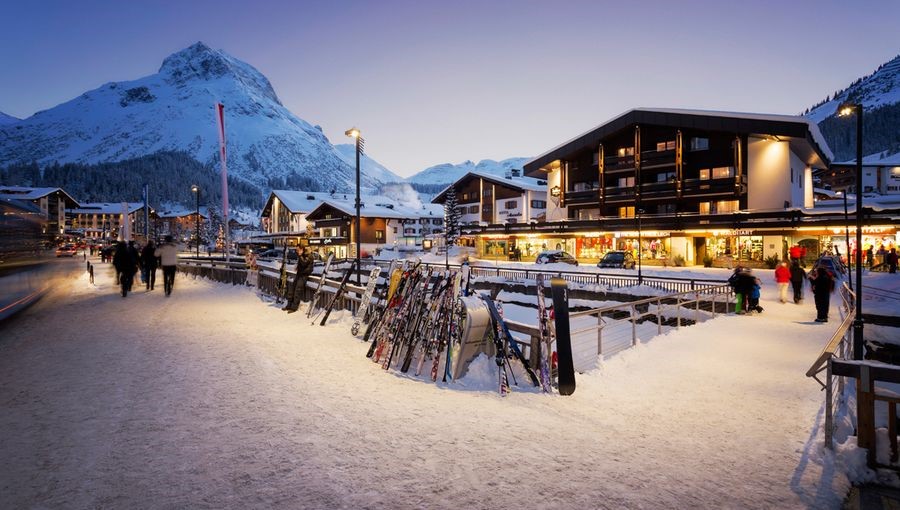 |
Idea of "Smart City" introduced into the alpine landscape of Vorarlberg
Another spatial element is the illumination of the facades. Here, the modular system proves particularly beneficial. Instead of installing the luminaire heads on the columns, they can also be installed on the facades, thus not only providing for uniformity of appearance and a balanced lighting effect but also for spectacular illumination of the hotel facades. This argument eventually also convinced the hotel keepers, who are themselves responsible for financing these measures.
The new light is dispensed in a well-dosed manner: from dusk till 10 p.m., all spaces of the town are illuminated; after 10 p.m., facade illumination is switched off; after midnight, the brightness of the street lighting is reduced as required, and until the morning only ambient street lighting is provided. The finely tuned brightness levels are made possible by special, web-based lighting control: each luminaire contains a radio sensor that is used for dimming and switching the light. In this way, the idea of the Smart City is introduced into the alpine landscape of Vorarlberg.
The new village lighting is not only a visual improvement. Precise focussed light combined with effective glare reduction and control make the LED luminaires used in the project more efficient and environmentally friendly than conventional concepts with diffuse and open light distribution, which emit 60% of the light into the sky with no effect. Light pollution and the impact of light on insects and small animals are reduced. The new Lech at night is therefore an investment into the future in many respects.
















